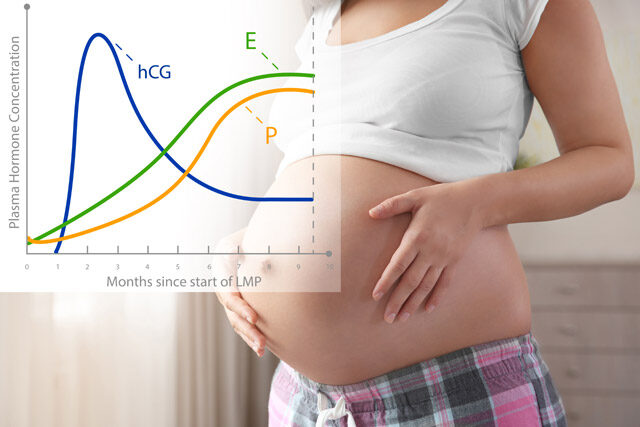The primary task of every mother-to-be is to give birth to a healthy baby. To achieve this, the well-being of the pregnant person is the most essential, and it can be maintained through a balanced diet and appropriate health care. While the importance of the latter is pretty obvious proper nutrition is key to receiving all the vitamins and minerals necessary for the safe development of the baby, and folic acid is among them.
What effects has folic acid on the organism
Folic acid, aka vitamin B9, is a water-soluble vitamin used by our bodies to produce new cells, especially for the growth and development of circulatory and immune systems. When your daily dose of folic acid is, for some reason, lower than recommended, it can cause anemia and digestive disorders.
How can you detect folic acid deficiency?
Some laboratory methods allow you to measure the amount of folate – folic acid compound – in your blood. This indicator is called blood folate concentration. If you have a low-level deficit of folic acid, you may not experience medical issues, but it will surely affect the course of your pregnancy and baby’s development. And after the patient starts taking folic acid in the recommended dose of 400 mcg a day, it may take months before their blood folate concentration will be high enough for the proper growth of the future baby. Therefore, when planning a child, make sure you’ve talked to your doctor about it, made all the necessary tests, and started taking folic acid in advance. Also, you may need a higher dose of folic acid, which is also a thing to discuss with your general practitioner.
Why is vitamin B9 important for a person with child?
Because folic acid is necessary for the organism to create healthy functional cells, it is vital for a healthy pregnancy. It contributes to the proper closure of the neural tube. This is the embryonic precursor to the central nervous system and forms in the early pregnancy terms, 4 to 6 weeks of gestation.
The researches show that in the USA, 1,300 babies are born healthy each year thanks to the use of the folic acid supplement that helps prevent inborn abnormalities such as spina bifida or anencephaly, affecting the baby’s brain and spinal cord, accordingly.
The CDC recommends that any person of reproductive age take 400 mcg of folic acid daily with a mono supplement or a prenatal vitamin complex. This is based on the knowledge that a person does not get enough folic acid in their diet, and many pregnancies are unintended. And, as the neural tube forms in the first months of pregnancy, the damage caused by the vitamin deficiency can be done when the person does not even know about the baby.
Folic acid in natural sources
So, how can you ensure you get enough folic acid daily? The first thing is to start with a balanced meal.
Many foods contain folic acid in its natural form, folate, or folacin. Good sources of it are:
- Dark green food, such as broccoli, spinach, asparagus, romaine lettuce, Brussels sprouts, turnip greens, kale, etc.
- Breakfast cereals fortified with folic acid
- Peanuts
- Beans
- Eggs
- Seafood
- Sunflower seeds
- Citrus fruits
- Papaya
- Bananas
- Avocado
- Honey
Please remember that temperature processing of the product destroys 80%–95% of the folic acid it contains. Folates in meat products such as the liver are less susceptible to decomposition, but it is unfortunately not recommended during pregnancy. The liver, in particular, contains high amounts of retinol contraindicated for pregnancy, and meat should be cooked very thoroughly to reduce the risk of parasitic invasion,which basically destroys the purpose of getting the amount of folic acid you need.
Note that for pregnant persons and those trying to conceive, it is preferable to take a prenatal vitamin complex or a folic acid supplement. Synthesized folic acid does not get broken easily due to the effect of heat or light, it is easy to absorb for your body, and its effectiveness has been proven by numerous studies.
Folic acid in supplements
Dietary supplements, vitamins, and prenatal vitamin complexes may contain synthetic folic acid or folates in different forms, including the following:
- Dihydrofolate (DHF)
- Tetrahydrofolate (THF)
- 5, 10-methylenetetrahydrofolate (5, 10-Methylene-THF)
- 5-methyltetrahydrofolate (5-Methyl-THF or 5-MTHF)
Folate supplements are often marketed as more natural and easily absorbable. But it is important to remember that pure folic acid is less likely to cause an allergic reaction. Its pharmacokinetics is well-known, and to a certain degree predictable, so it is easier to establish an effective treatment course.All the studies on neural tube defect prevention were carried out with folic acid, not folate.
Folic acid for people with a variant in MTHFR
MTHFR (methyltetrahydrofolate reductase) is an enzyme that affects the speed of folate processing in the body. There is a genetic mutation when a person has a variant of it, which is also known as the MTHFR TT or CT genotypes, and their body processes folate at a slower rate. However, the research shows that their blood folate concentration improves, as well, with a daily intake of 400 mcg of folic acid. The studies held in populations with very common MTHFR TT or CT genotypes show that folic acid supplementation was able to reduce the risk of neural tube defect by up to 85%. Three months of consuming the recommended daily dose of folic acid are scientifically proven to increase the folate blood concentration to up to 250%.
Conclusions
- Folic acid plays a vital role in aperson’s health.
- Having a sufficient level of folate blood concentration greatly reduces the risk of birth defects during pregnancy.
- Maintaining the desirable level of folic acid intake is the easiest and most effective with the use of synthetic folic acid supplements, which can be found in the local pharmacies and grocery stores, or online.




